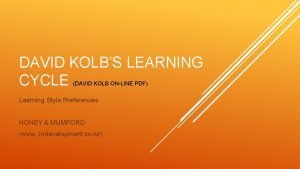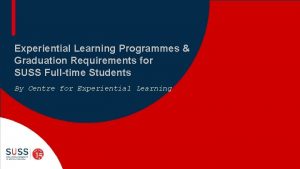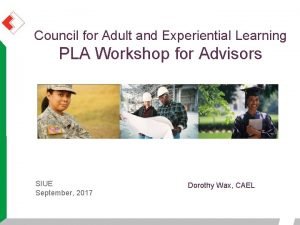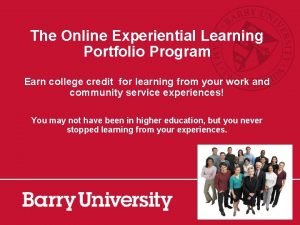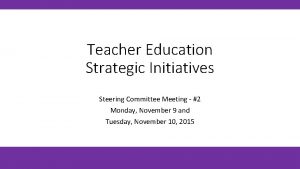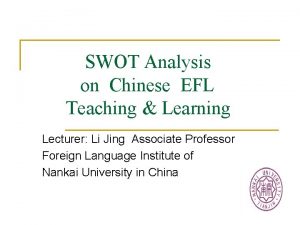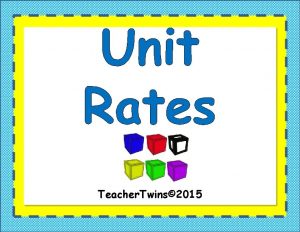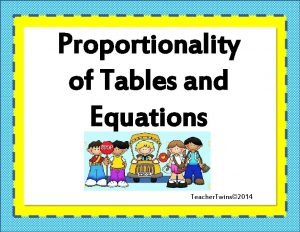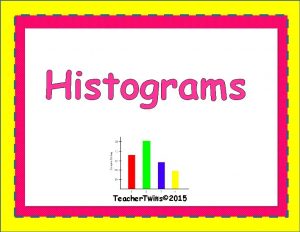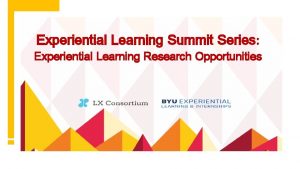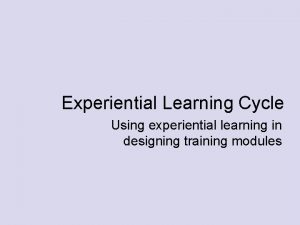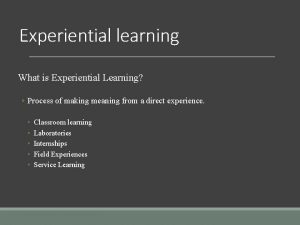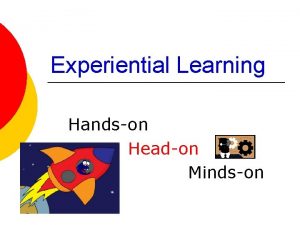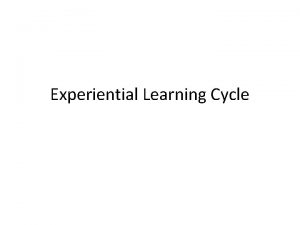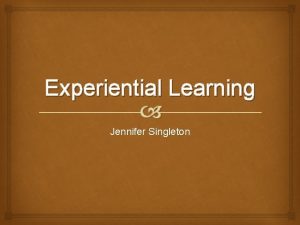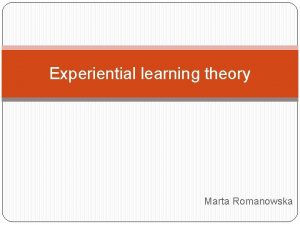TEACHER TEAMS MARCH 2015 Review Experiential Learning Opportunities









- Slides: 9

TEACHER TEAMS MARCH 2015

• Review Experiential Learning Opportunities, • Student Self Evaluation, • Teacher Teams, • Teaching Strategy Dossier


PROFESSIONAL LEARNING COMMUNITIES • PLC’s, Richard Dufour • “Support learning communities that enable educators to collaborate, share best practices, ” • Model the kinds of practices we are looking for in our classrooms, • Promote knowledge sharing amoung communities of practitioners.

THREE BIG IDEAS OF THE PLC CONCEPT 1. A commitment to high levels of learning for all students 2. The imperative of a collaborative and a collective effort to fulfill that commitment, 3. The intense focus on results that enables a school to respond to the needs of each student, inform teacher practice, and fuel continuous improvement. Dufour, R (2010 ). The Role of PLC’s in Advancing 21 st Century Skills.

A SHIFT TO… • Teaching without learning isn’t teaching at all; it’s just presenting. The purpose of school is to ensure all students learn, • Professionals have an obligation to seek out best practices for those they serve, • Professionals must address the crucial issues impacting student learning collectively rather than in isolation. Teachers must build a collaborative culture and systems that promote effectiveness and equity. • Teachers must take collective responsibility for their students. • The individual and collective efforts of educators can have enormous positive impact.

WHAT DRIVES EFFECTIVE PLC’S • What do we want each student to learn? • How will we know when each student is learning? • How will we respond when a student is not learning? • How will we enrich and extend the learning for those who are proficient? ‘An expert is a person who has made all the mistakes that can be made in a very narrow field’ Niels Bohr

TO WONDER ABOUT • As a teacher, what are your strengths? • As a learner, what are you strengths? What can you offer a teaching team? As a teacher, in which areas are you looking for some support? How can your teaching team support you?


